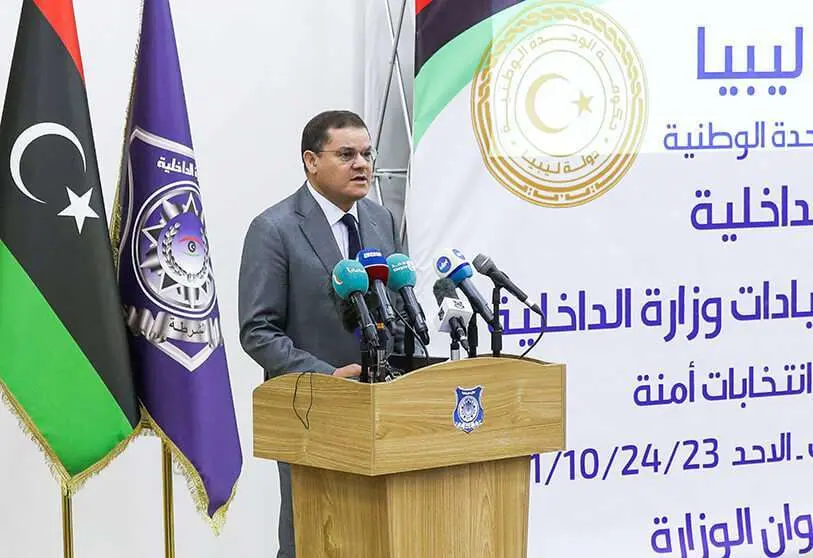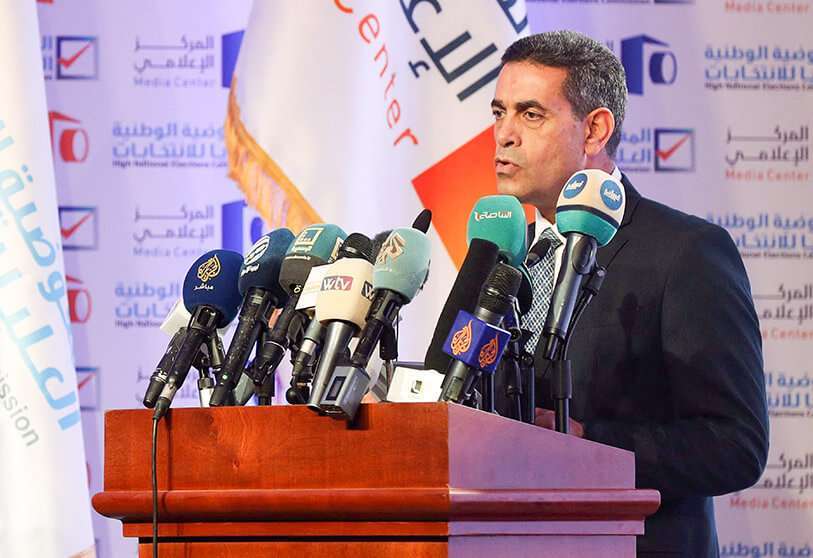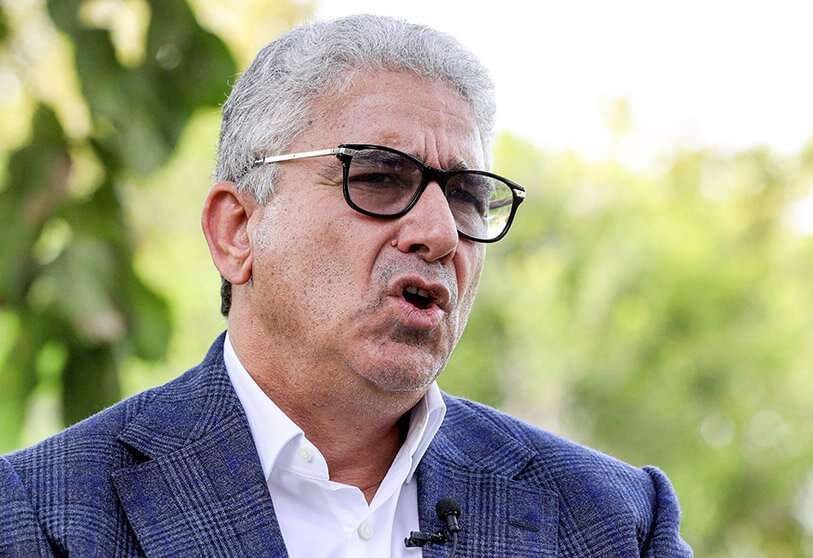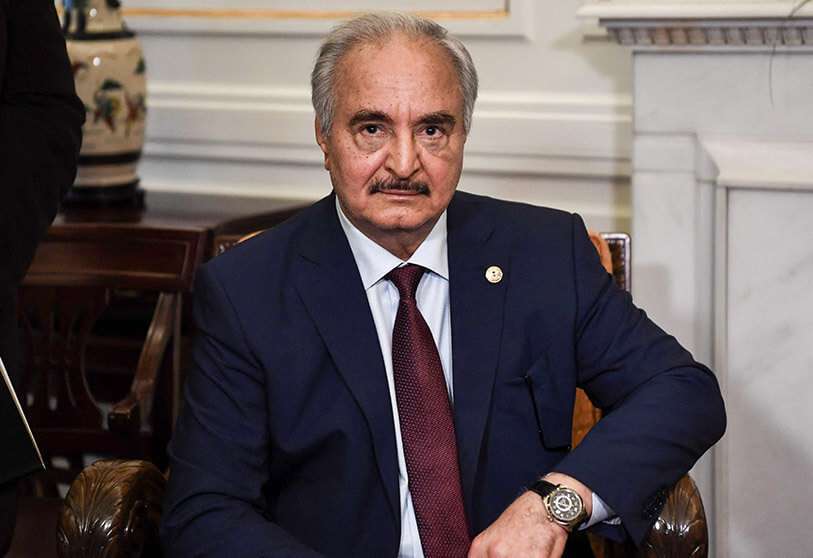Libya's prime minister to run for president in December elections

The countdown to Libya's presidential elections, scheduled for 24 December, has begun. The country's Supreme Electoral Commission today opened the deadline for registering the candidacies of presidential hopefuls. A total of 1,906 polling stations will open on Monday to distribute ballot cards, according to EFE.
The deadline to run for the Libyan presidency is 22 November, while parliamentary aspirants can run until 7 December, according to the Tobruk parliament. This legislative chamber, led by Aguila Saleh, was formed in the eastern part of the country in 2014 against the Government of National Accord (GNA) in Tripoli. This parliament was also the last one to be democratically elected.
Emad Al-Sayeh, chairman of the Electoral Commission, has urged the aspirants to "comply with the registration rules and provide all required documents without delay". He also called on the nearly 2.8 million Libyans called to the polls to go to the centres where they are registered to obtain voter cards so that they can exercise their right to vote in December.

Libyan citizens will have several options to choose from, including Libyan National Army (LNA) leader Marshal Khalifa Haftar; the son of former Libyan dictator Saif Al-Islam Gaddafi; and possibly also current GNA Prime Minister Abdul Hamid Dbeibe. A senior official told Reuters that Dbeibe "announced his intention to run in the upcoming presidential elections". Other possible candidates include Aguila Saleh, head of parliament, Ibrahim al-Dabbashi, Libya's ambassador to the UN under Gaddafi, and Fathi Bashagha, a former interior minister with links to Salafist militias in the west of the country.
Haftar has been one of the most important figures on the Libyan political scene since he returned to the country in 2011 after several years in exile in the United States. The marshal, through the LNA, confronted the country's Islamist militias, driving them out of some key strongholds. During his dispute with the Government of National Accord (GNA), Haftar has relied on foreign support from France, Russia, and the United Arab Emirates, among others. The GNA, on the other hand, has been mainly backed by Turkey. Both sides agreed to a ceasefire in August 2020.

Despite existing ties with several strong powers, Haftar continues to seek support outside Libya. Recently, the marshal's son travelled to Israel "in search of diplomatic ties for military aid", as reported by Yossi Melman, a journalist for the Israeli media outlet Haaretz. Saddam Haftar is the military's right-hand man and was even appointed army commander while Khalifa was in hospital in Paris a few years ago.
Haftar's son landed at Tel Aviv's Ben Gurion airport on board his private French-made plane from Dubai. Saddam stayed on Israeli soil for about 90 minutes, although, according to the Hebrew media outlet, 'it is not clear who he met'. Haaretz notes, however, that Haftar has had contacts with Israel in the past through the Mossad, despite the fact that Tripoli has no relations with Jerusalem.

"Israel has always had an interest in Libya because of its geostrategic location in the Mediterranean and its proximity to the Egyptian border, and also because of the large community of Libyan Jews in Israel and its influence on Libyan Jews who emigrated to Italy," Melman explains.
The journalist also argues that after Gaddafi's death, Israel moved closer to Haftar, as Libyan arms depots were looted, and much equipment was sent to Hamas in Gaza and Hezbollah in Lebanon. Jerusalem then developed a dialogue with the marshal to stop these shipments. However, "at a certain point, in order not to put all its eggs in one basket, the Mossad decided to contact both Libyan governments", he adds.

The candidacy of Saif Al-Islam, the eldest son of Muammar Gaddafi, should also be highlighted. The descendant of the Libyan dictator is accused of war crimes during the Libyan uprisings of 2011 by the International Criminal Court. In addition, last August, the Libyan Prosecutor's Office issued an arrest warrant for Al-Islam for alleged links with Russian mercenaries. Gaddafi's son is also indicted by the Criminal Court for crimes against humanity.
Al-Islam expressed his desire to "restore the lost homeland" during an interview with The New York Times, where he also did not rule out running in the upcoming Libyan elections. "The country is on its knees, there is no money, no security, no life," he said.

The upcoming elections in December aim to put an end to the violence and insecurity that the North African country has been suffering for several years. Another worrying issue affecting Libya is the presence of foreign mercenaries sent by the various powers that aspire to expand their influence in the country. The future Libyan government will have to devise a plan to address this challenge, because until foreign paramilitaries leave the country, Libya will not be able to start on the road to recovery and stability.








